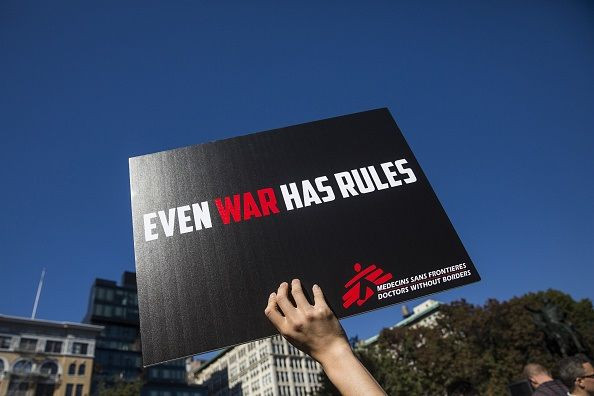US Military Punishes 16 Over 2015 Afghan Hospital Bombing

The U.S. military will announce on Friday that has it taken disciplinary action against 16 service members over a deadly Oct. 3 air strike in Afghanistan that destroyed a hospital run by the international medical charity Doctors Without Borders, U.S. officials told Reuters.
The disclosure of the nonjudicial punishments will come during the release of the findings of a U.S. military investigation into the incident, which will broadly conclude that the strike was a tragic mistake, the officials said, speaking on condition of anonymity.
That finding is consistent with the results of a preliminary investigation released by the U.S. military in November, when commanders stressed that American forces did not intentionally target the hospital.
Instead, General John Campbell, who was then head of U.S. and NATO forces in Afghanistan, described a series of blunders that allowed the American forces to target the hospital, even though it was on a no-strike list.
Doctors Without Borders has in the past publicly cast doubt on the idea that the strike could have been a mistake.
Forty-two people were killed in the incident and 37 were wounded as American forces helped Afghans repel Taliban insurgents from the city of Kunduz last year.
One general was among those singled out for disciplinary action, the officials said. The nonjudicial punishments include letters of reprimand, which could have a career-ending effect on the service members involved.
"These people are not promotable," said one U.S. official.
According to the initial U.S. investigation, U.S. forces had meant to target a different building in the city and were led off-track by a technical error in their aircraft's mapping system that initially directed them to an empty field.
The U.S. forces then looked for a target that was visually similar to the one they had originally sought, the former National Directorate of Security headquarters in Kunduz, which they believed was occupied by insurgents.
The Taliban's brief capture of the Kunduz provincial capital was arguably the biggest victory for the militants in the 15-year war since they were toppled by U.S.-led forces in late 2001.
Violence in Afghanistan is at its worst since the departure of most foreign combat troops in 2014.
© Copyright Thomson Reuters 2024. All rights reserved.





















